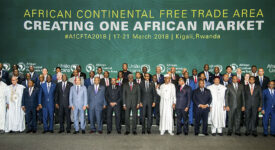Friends of Europe
The EU and India seem to be perfect partners for one another. They are both large and socially diverse democracies, whose economic profiles complement each other. A free trade agreement (FTA), which has the potential to bring significant benefits to both parties, has, however, been negotiated already since 2007. The talks on the FTA are slowed down by several controversial points, which push the actual conclusion of the agreement into an impasse.
Among the problematic areas is, for example, the EU’s demand that India cuts its import duties on cars, dairy products or alcoholic beverages. This would be a decision that could put a substantial pressure on Indian manufacturers. The Union also calls for an easier access to the Indian services market such as banking, telecommunications and law or accounting. India would, on the other hand, like more of its skilled professionals to work on short-term projects in the EU. Any negotiations concerning employment and labor force are quite a sensitive topic owing to the economic crisis and its consequences. Another stumbling block is also India’s demand to increase its exports of pharmaceutical products to the EU. After the European Union banned the import of 700 types of Indian pharmaceuticals in 2015, Delhi postponed the next round of negotiations.
The bilateral trade between the two partners is thus lower today than what one would expect in the case of such large economies. Although the EU is India’s largest partner, the country accounts only for about 2.1 percent of the total EU trade, which could, however, benefit from increased exports to what was the fastest-growing major economy in 2015. Since the beginning of Prime Minister Modi’s term, the Indian government has moreover adopted a number of initiatives to promote economic growth, many of which facilitate the involvement of foreign companies.
On the contrary, India could take advantage of the European investment and technology to support its production, educate its workforce or to digitalize rural areas. Moreover, if the economic partnership proved beneficial for both parties, it could facilitate cooperation in other areas, such as security, in the future. India is home to the second largest Muslim population and as such it could offer its experience in managing its radicalization. Although both trade and investment can naturally flow between the EU and India even without a free trade deal, until the FTA is ultimately achieved, it won’t be possible to realize the full potential of the partnership.
(The study can be downloaded here: http://www.friendsofeurope.org/global-europe/report-eu-india-just-like-starting-over/)







